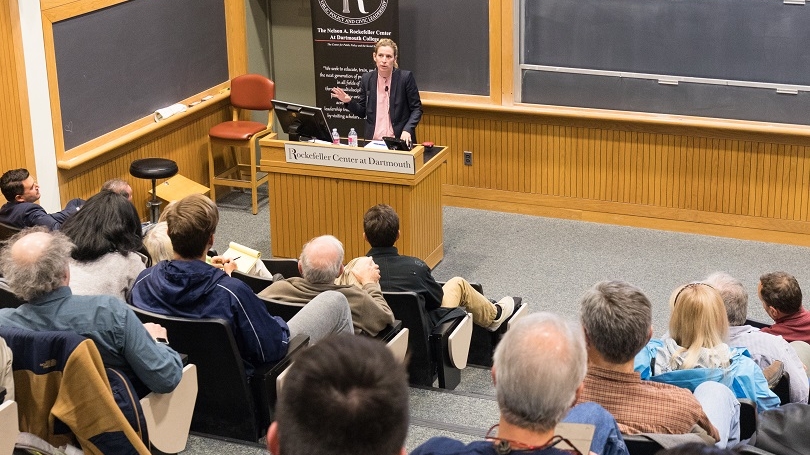
- Public Policy
- Leadership
- Funding
- News & Events
- About the Center
Back to Top Nav
Back to Top Nav
Back to Top Nav
Back to Top Nav
When Brexit passed in the United Kingdom last summer, the world was shocked and is still reeling from the implications of Brexit for the stability of the European Union and international system. Donald Trump’s victory in the 2016 presidential election in the United States was yet another shock to audiences around the globe, and the absence of France’s usual political parties in the presidential run-off this month had people wondering whether Marine Le Pen of the National Front would result in another victory for right-wing politics. Each of these is a clear example of the rise of right-wing populism in the U.S. and Europe. The atmosphere is tense; feelings ripe; and politics more uncertain than ever before in recent memory.
The rise of right-wing populism poses challenges not only to the political system but also to journalists, publishers, and news organizations around the world. Americans have already begun to see this with Trump and his administration’s claims of “fake news,” directly disparaging news organizations and actively undermining their credibility. Yet right-wing groups utilize the media as well as they craft a strong and growing network of websites and social media operations to spread their views, attract new followers, and consolidate their powerbases. The result is a tense and visible debate between news organizations and the right-wing movements that discredit them about a wide range of important topics, ranging from healthcare to defense spending, and the outcome of this debate will be crucial in determining the future of journalism.
To complicate matters even further, journalism at the same time is undergoing a fundamental change. In an age of globalization marked by easy Internet access filled with a plethora of distractions and tempting clickbait, journalism itself is increasingly challenging old business models as well as its traditional status as news providers. The world has changed — and journalism must, too. This is becoming even truer now as the credibility and motives of news organizations are increasingly called into question. As the world has seen in just the past year alone, even one election can dramatically alter global perceptions and discourse, and journalism must evolve to influence and assert itself in the conversation. Imperative though it may be, however, the fact remains: transformation is easier said than done.
On May 15, 2017, the Rockefeller Center welcomed Karin Pettersson to a highly relevant and engaging lecture on political polarization as encapsulated in far right-wing populism and the ways journalism can innovate to address this challenge. Pettersson used the time to discuss the perfect storm created by the intersection between the emergence of political polarization and fragmentation, and the recent transformation of the media landscape as well as the vulnerabilities and fragility of democracy that these changes have exposed. She encouraged the audience to consider how journalism and citizens can evolve to meet these challenges in a quickly changing world.
Karin Pettersson is the current Nieman-Berkman Fellow in Journalism Innovation at the Nieman Foundation at Harvard University. She is the political editor-in-chief at Aftonbladet, Scandinavia’s biggest daily newspaper, as well as the co-founder and former editor-in-chief of Fokus, Sweden’s leading newsmagazine. During her time at Fokus, the publication won one of Sweden’s most prestigious awards for reinventing political journalism. At Aftonbladet, she has quadrupled the readership of the editorial page and started a new digital brand for editorial journalism online. Pettersson has been recognized for her achievements, winning the European Newspaper Award for a series about Roma people in Stockholm.
Submitted by Nicole Simineri ’17, Rockefeller Center Student Program Assistant for Public Programs
The views and opinions expressed and any materials presented during a public program are the speaker’s own and do not necessarily represent the views and opinions of the Rockefeller Center or constitute an endorsement by the Center.